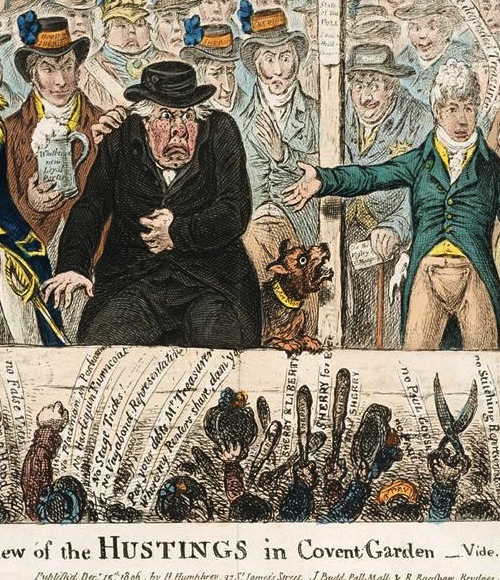Two passing observations on the election.
Firstly, on Gordon Brown’s little faux pas today. Clearly being caught describing a voter as ‘a bigoted woman’ makes him look like an idiot, especially since she hadn’t actually said anything especially bigoted.
On the other hand, I’m curious about the ethics of the news organisations using a recording of a private conversation which they recorded by accident. I bet that every news broadcaster keeps a store somewhere of the amusing, stupid, unguarded things that politicians say when they are miked up but not yet on air: a blooper reel for their own amusement. So for the sake of fairness, perhaps we should hear all those things. And indeed the things that journalists say between themselves after talking to members of the public.

And secondly, I’ve been thinking a bit about voting reform. I have become increasingly sick of first past the post; quite apart from the national implications of governments getting large majorities with a minority of the vote, I’m personally fed up with tactical voting. I don’t want to have to think about who can win in my constituency; I want to vote for the party I actually want and believe my vote counts for something.
But seems like something where the law of unintended consequences is sure to come into play. Depending on the exact system we switched to, it wouldn’t be a small change. After all, if you just took the last few decades of election results and converted them to a proportional system, we would have had 25 or 30 years of permanent Lib-Lab coalition; or perhaps the LIb-Dems as permanent kingmakers. And having the same people permanently in power is exactly what we don’t want, I would think.
In fact, what would probably have happened by now is the increasing importance of small parties; the Greens, the BNP, UKIP might well all have MPs. The SNP, Plaid Cymru and the Irish parties would probably have more influence. And it’s quite possible that the major parties would have split: both Socialist Labour and New Labour MPs, for example. I have no idea whether all this would have been a good thing or not; but it is certainly a big deal.
The thing is, FPTP is only really suited to a two-party system. Which I think means that the current system is broken. On the other hand, changing to PR would mean a radical change in the political culture of the UK comparable to the great C19th Reform Acts. That doesn’t mean we shouldn’t do it, but we do need to go into it with our eyes open.




